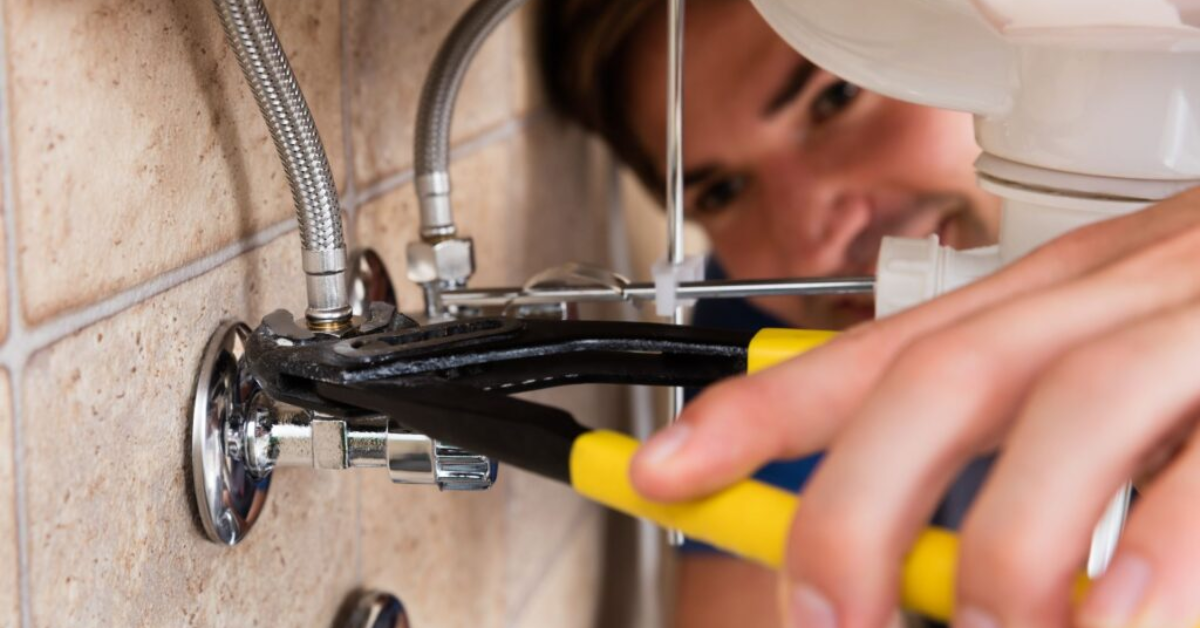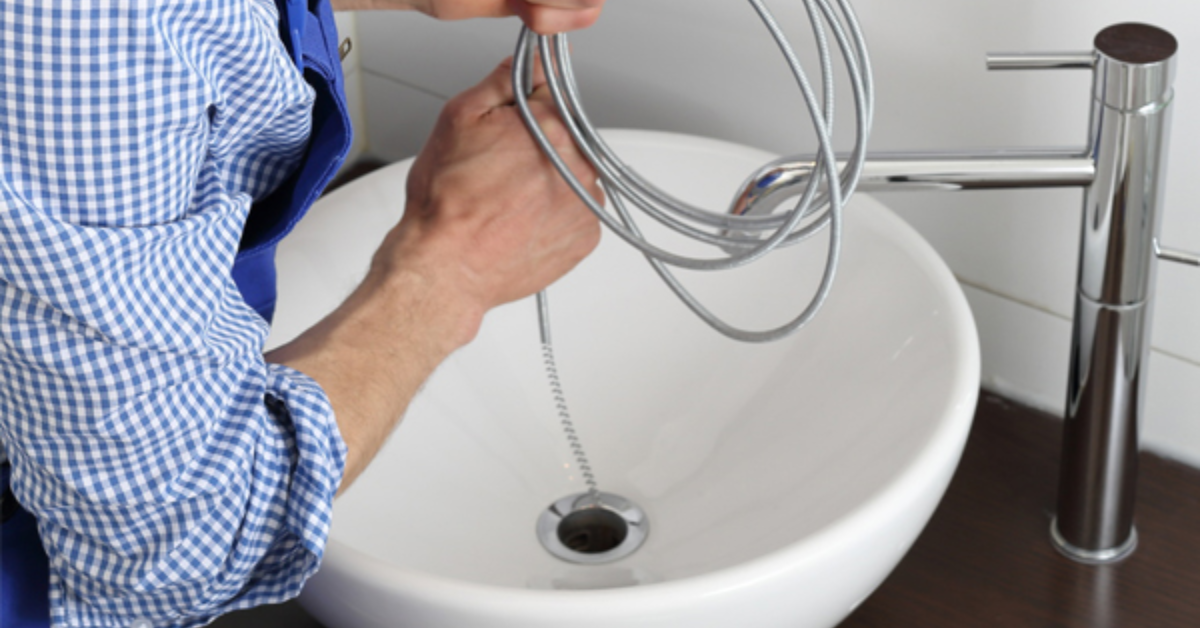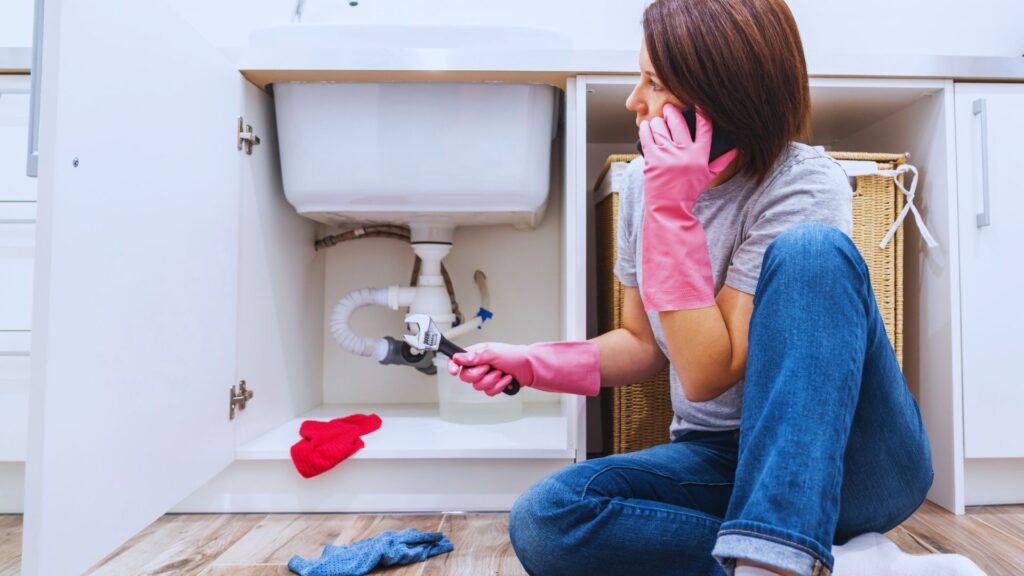
Imagine your kitchen plumbing as a finely tuned orchestra. You may be able to handle the occasional out-of-tune note with a quick adjustment here and there, but what about when the entire composition seems off-key? Knowing when to tackle the plumbing repairs yourself and when to seek professional help is essential in maintaining the harmony of your home. Let’s explore the key factors that can guide you in making this decision and guarantee the smooth functioning of your kitchen plumbing system.
Key Takeaways
- Evaluate complexity: Simple tasks like tightening connections can be DIY, while complex issues like persistent leaks may require a professional.
- Consider safety risks: DIY projects pose risks like water damage and electrical hazards, warranting professional help for safety.
- Assess cost-effectiveness: Compare initial DIY costs with long-term professional services to determine the most economical option.
- Recognize expertise needed: Licensed plumbers offer precision, specialized tools, and experience for lasting solutions in intricate plumbing systems.
- Prioritize maintenance: Routine checks, prevention of clogs, and proper disposal practices can help avoid major plumbing issues, reducing the need for professional intervention.
Common Kitchen Plumbing Issues
When it comes to common kitchen plumbing issues, being proactive can save you time and money in the long run. Two prevalent problems you may encounter are kitchen faucet repairs and sink drain clogs. Let’s explore these issues to help you navigate through potential plumbing challenges efficiently.
Kitchen faucet repairs are a frequent concern in many households. If you notice leaks around the base of the faucet or irregular water flow, it may be time for a repair. Start by turning off the water supply under the sink.
Check for any loose connections or worn-out parts that may need replacement. Tighten any loose nuts or bolts and guarantee a secure connection between the faucet and the countertop. If the issue persists, you might need to replace the cartridge or call in a professional for further assistance.
Sink drain clogs are another common headache in the kitchen. If you find water pooling in your sink or a slow drainage rate, a clog is likely the culprit.
Begin by using a plunger to try and dislodge the blockage. If that doesn’t work, a mixture of hot water, baking soda, and vinegar can sometimes break down the clog. For stubborn clogs, a drain snake may be necessary to clear the pipe effectively.
Remember to avoid using harsh chemicals, as they can damage your pipes in the long term.
Tools Needed for DIY Plumbing
To effectively tackle DIY plumbing projects in your kitchen, having the right tools is fundamental. When diving into kitchen plumbing tasks, guarantee you have a set of essential equipment at your disposal.
Plumbing tools such as pipe wrenches are critical for tightening and loosening pipes securely. Drain snakes come in handy for clearing clogs in sinks or drains. Sealant tape is a must-have for creating watertight seals on pipe connections. Additionally, having repair kits with various fittings and washers can save you from last-minute trips to the hardware store.
Maintenance tools like wrenches, pliers, and screwdrivers are significant for everyday upkeep. When it comes to installation supplies, make certain you have all the necessary connectors, nuts, and bolts on hand.
Safety gear, including gloves and safety goggles, shouldn’t be overlooked to protect yourself during plumbing tasks. Remember, precise measurements are key to a successful plumbing project, so having the right measurement tools, like tape measures or rulers, is fundamental for accuracy.
Stocking up on these plumbing tools and equipment won’t only make your DIY projects smoother but also give you the confidence to tackle various kitchen plumbing issues.
Safety Precautions for DIY Projects
For a successful DIY plumbing project in your kitchen, prioritizing safety precautions is paramount. Before starting any work, make certain you have personal protective equipment such as gloves, safety goggles, and closed-toe shoes. These items will protect you from potential hazards like sharp tools, debris, or chemical splashes. Additionally, a first aid kit should be nearby in case of minor injuries.
Emergency preparedness is essential during any DIY project. Familiarize yourself with the location of the main shut-off valve for water in your home. In case of a leak or burst pipe, being able to quickly turn off the water supply can prevent significant damage.
Keep a fire extinguisher in the kitchen as a precautionary measure. Be cautious when working with tools and materials that could pose a fire risk.
When working on kitchen plumbing, be mindful of electrical safety. Make certain all power sources near wet areas are turned off to prevent the risk of electric shock. If you’re unsure about any electrical connections, it’s best to consult a professional.
Signs You Need a Professional
If you’re facing complex plumbing issues like multiple leaks or a sudden drop in water pressure, it’s time to call in a professional.
Specialized equipment, such as drain cameras and hydro-jetting machines, may be necessary to diagnose and fix the problem effectively.
Complex Plumbing Issues
When faced with complex plumbing issues, such as persistent leaks, water discoloration, or sudden drops in water pressure, it becomes crucial to acknowledge the signs indicating the need for a professional intervention.
For instance, if you notice recurring leaks despite multiple repair attempts, it may signify underlying pipe damage that requires thorough inspection and possible replacement. Water discoloration could point towards pipe materials deteriorating or contaminants entering the system, necessitating expert analysis and system upgrades to guarantee water quality and safety.
Sudden drops in water pressure might indicate issues with the plumbing system that could range from fixture updates to drainage solutions, which often require a professional touch to address efficiently and effectively while complying with plumbing codes.
Moreover, when it comes to leak detection or emergency repairs, professionals possess the expertise to identify hidden leaks and provide lasting solutions that go beyond quick fixes.
Additionally, plumbing warranties are often honored when the work is done by certified professionals, providing peace of mind and long-term reliability in your kitchen plumbing system.
Specialized Equipment Required
The necessity for specialized equipment becomes evident when accurately diagnosing and addressing complex kitchen plumbing issues. When facing intricate problems like hidden leaks or clogged pipes deep within your kitchen’s plumbing system, specialized tools and plumbing equipment are essential for a detailed assessment and effective resolution.
Professional plumbers are equipped with advanced tools such as drain cameras, hydro-jetters, and pipe locators that allow them to pinpoint the exact location of issues without causing unnecessary damage to your kitchen.
These tools enable them to inspect the inside of pipes, clear blockages efficiently, and identify underlying issues that may not be visible to the naked eye.
Attempting to tackle these problems without the proper specialized equipment can lead to incomplete repairs, recurring issues, and potential damage to your kitchen plumbing system.
Safety Risks Involved
Facing kitchen plumbing issues can pose potential safety risks if not addressed promptly and with expertise.
When dealing with DIY kitchen plumbing repairs, it’s vital to recognize the potential for plumbing accidents that could result in water damage, electrical hazards, or even personal injury. Incorrectly handling pipes, fittings, or appliances can lead to leaks, flooding, or the release of harmful gases such as carbon monoxide.
Emergency preparedness is key when it comes to kitchen plumbing, as a small mistake can quickly escalate into a hazardous situation. To guarantee your safety and your home, it’s essential to know when to call a professional plumber.
Signs that indicate the need for expert intervention include persistent leaks, water discoloration, foul odors, or sudden drops in water pressure. By recognizing these indicators and acting promptly, you can prevent potential safety risks and costly damages associated with DIY kitchen plumbing repairs.
Pros and Cons of DIY Plumbing
How do you weigh the benefits and drawbacks of tackling your kitchen plumbing project on your own? When it comes to DIY plumbing, it’s imperative to debunk some common misconceptions and plumbing myths that may lead you astray.
One of the key advantages of DIY plumbing is the potential cost savings. By taking on the project yourself, you can avoid labor costs associated with hiring a professional plumber. Additionally, completing a plumbing task on your own can provide a sense of accomplishment and empowerment, adding a personal touch to your kitchen.
However, there are several cons to take into account before diving into a DIY plumbing project. One major drawback is the risk of making errors that could result in costly damage to your kitchen or even potential health hazards if not done correctly.
DIY plumbing also requires a certain level of expertise and knowledge of local building codes, which could be challenging for beginners. Furthermore, the time and effort required to research, purchase tools and materials, and execute the project may outweigh the benefits for some individuals.
In weighing the pros and cons of DIY plumbing, it’s vital to assess your own skills, comfort level, and the complexity of the task at hand. While DIY projects can be rewarding, it’s important to recognize when a plumbing issue may be better left to a licensed professional.
Hiring a Licensed Plumber
Consider this: when faced with complex or critical kitchen plumbing tasks, the expertise and precision of a licensed plumber can make all the difference.
Hiring a licensed plumber brings a multitude of benefits that can save you time, money, and stress in the long run. Licensed plumbers have undergone extensive training and certification processes, ensuring they possess the necessary skills and knowledge to tackle a wide range of plumbing issues efficiently and effectively.
One of the key advantages of choosing a licensed plumber is the assurance of quality workmanship. Their credentials demonstrate that they’ve met specific industry standards and regulations, giving you peace of mind that the job will be done correctly.
Licensed plumbers also have access to specialized tools and equipment that may not be readily available to the average homeowner, allowing them to address problems with precision and expertise.
Furthermore, licensed plumbers are equipped to handle unforeseen challenges that may arise during the plumbing process. Their experience enables them to quickly identify issues and implement solutions, avoiding costly mistakes that could result from DIY attempts.
Cost Comparison: DIY vs. Professional
When comparing the cost of DIY plumbing projects to hiring a professional, it’s crucial to evaluate the affordability analysis of each option.
DIY projects often seem cost-effective upfront, but hidden expenses like tools, permits, and potential mistakes can add up quickly.
On the other hand, professional kitchen plumbing services may come with a higher price tag, but they offer expertise, quality workmanship, and peace of mind.
DIY Affordability Analysis
To determine the affordability of DIY kitchen plumbing versus hiring a professional, it’s essential to conduct a thorough cost comparison analysis.
When examining cost-effective solutions and engaging in budget planning for your kitchen plumbing project, it’s vital to weigh the expenses associated with both avenues. DIY projects often seem more economical at first glance due to the absence of labor costs.
However, it’s important to evaluate the expenses of tools, materials, and the potential for errors that may incur additional costs.
Professional services, while initially pricier, offer expertise and efficiency that could save you money in the long run by reducing the risk of mistakes and the need for future repairs.
When evaluating the affordability of DIY versus professional kitchen plumbing, take into account not just the immediate costs but also the long-term implications.
Make an informed decision based on your budget constraints and the complexity of the plumbing task at hand.

Professional Service Pricing
Moving from analyzing the affordability of DIY kitchen plumbing to exploring professional service pricing is a shift that brings an additional layer of thoughtfulness to your decision-making process.
When evaluating professional service options for your kitchen plumbing needs, it’s essential to take into account pricing transparency. Professional plumbers often provide detailed estimates that outline the costs involved, including labor, materials, and any additional charges.
While the upfront cost of hiring a professional may seem higher than tackling the project yourself, the expertise and efficiency they bring can lead to long-term cost savings by preventing future issues.
Professional service pricing can vary based on factors such as the complexity of the job, the plumber’s experience, and your location. It’s advisable to obtain quotes from multiple plumbing professionals to compare pricing and services offered.
Remember that choosing a reputable plumber with a track record of quality workmanship can provide peace of mind and guarantee that the job is done right the first time.
DIY Fixes for Minor Leaks
Facing a minor leak in your kitchen plumbing can be a nuisance, but with the right tools and know-how, you can tackle the issue with ease. To begin, start by conducting leak detection to pinpoint the source of the leak. Common areas to check include under the sink, around the faucet, or along the pipes.
For faucet repairs, make certain that the water is turned off before disassembling the faucet to inspect for any worn-out parts that may be causing the leak. Replace any damaged components and reassemble the faucet securely to prevent further leaks.
If the leak is coming from a pipe, consider insulating the pipes to prevent future leaks due to temperature changes. Additionally, check the water pressure in your kitchen to make certain it isn’t too high, as this can lead to leaks over time.
For drain cleaning, use appropriate methods such as a drain snake or commercial drain cleaner to clear any blockages causing the leak. Applying sealant around joints and connections can also help in temporarily fixing minor leaks.
In case of emergency, always have a plumber’s contact handy. These DIY fixes for minor leaks can help you address the issue quickly and effectively, saving you time and money in the long run.
Knowing Your Limits: DIY Tips
If you’ve successfully tackled minor leaks in your kitchen plumbing, you’ve shown that you have some DIY skills in this area. Building on this foundation, it’s important to know your limits when it comes to plumbing projects.
Understanding your level of expertise and being realistic about what you can handle will save you time, money, and potential headaches in the long run.
When it comes to plumbing skills, it’s vital to assess your comfort level with various tasks. Simple fixes like tightening a loose connection or replacing a worn-out washer are great starting points.
However, more complex issues like rerouting pipes or installing new fixtures require a higher level of expertise. Before diving into a project, consider whether you have the knowledge and experience to complete it successfully.
Project planning is another key aspect of DIY plumbing. Before starting any work, make sure you have a clear understanding of what needs to be done.
Create a detailed plan that outlines the steps involved, necessary materials, and potential challenges. Proper planning will help you stay organized and prevent costly mistakes along the way.
Maintenance Tips for Kitchen Plumbing
To keep your kitchen plumbing in top shape, focus on preventing clogs by avoiding pouring fats or oils down the drain and using a drain strainer to catch food debris.
Regularly check for leaks under the sink, around the faucet, and near the dishwasher to catch any issues early on.
Practice proper disposal practices by refraining from putting coffee grounds, eggshells, and fibrous foods like celery down the garbage disposal to prevent clogs and damage.
Preventing Clogs Effectively
When it comes to maintaining your kitchen plumbing system, keeping it free of clogs is vital for smooth operation. To prevent clogs effectively and guarantee your drains work efficiently, regular drain maintenance is important.
Start by being mindful of what goes down your kitchen sink. Avoid pouring grease, oil, coffee grounds, and food scraps down the drain, as these can easily lead to clogs. Use a drain strainer to catch food particles and debris before they enter the pipes. Run hot water down the drain after each use to help prevent grease buildup and keep the pipes clear.
For a deeper clean, you can use a mixture of baking soda and vinegar followed by hot water to break down any residual gunk in the pipes. Consider using a biological drain cleaner monthly to maintain the health of your drains.
Checking for Leaks
Detecting leaks in your kitchen plumbing is essential to prevent water damage and maintain the efficiency of your system.
To check for leaks, start by inspecting all visible pipes under the sink, behind the dishwasher, and around the refrigerator water line. Look for any signs of water pooling, dripping sounds, or water stains. Additionally, check for any mold or mildew growth, as this could indicate hidden leaks. Utilizing a flashlight can help you spot leaks in dark or cramped spaces.
To further investigate, dry all surfaces thoroughly and place a paper towel under each pipe connection. Leave it for a few hours and check for any moisture. If you find damp spots, this may indicate a leak that needs repair.
Common repair techniques for leaks include tightening loose fittings, replacing damaged seals, or applying plumber’s tape to seal small leaks temporarily.
Regularly checking for leaks in your kitchen plumbing will help you catch and address issues early, preventing costly water damage and maintaining the integrity of your system.
Proper Disposal Practices
Inspecting and maintaining proper disposal practices in your kitchen is essential for the overall health and functionality of your plumbing system.
To guarantee sustainable disposal and effective waste management, always avoid putting non-biodegradable items such as plastic, glass, or metal down the disposal. These items can damage the blades and clog the pipes, leading to costly repairs.
Opt for natural cleaning solutions like vinegar and baking soda to keep the disposal clean and odor-free without harming the environment.
Regularly check for any leaks or unusual noises coming from the disposal unit, as these could indicate a problem that needs immediate attention.
Avoid pouring grease or oil down the drain, as they can solidify and cause blockages over time. Instead, collect them in a container and dispose of them properly in the trash.
Pipe It Up provides expert kitchen plumbing services in Aurora, addressing all your kitchen plumbing needs efficiently and reliably. Whether you’re dealing with a clogged drain or a leaky faucet or need installation for new appliances, their skilled team ensures top-quality service and solutions tailored to your specific requirements. You can trust them to handle all your kitchen plumbing issues professionally and carefully.



